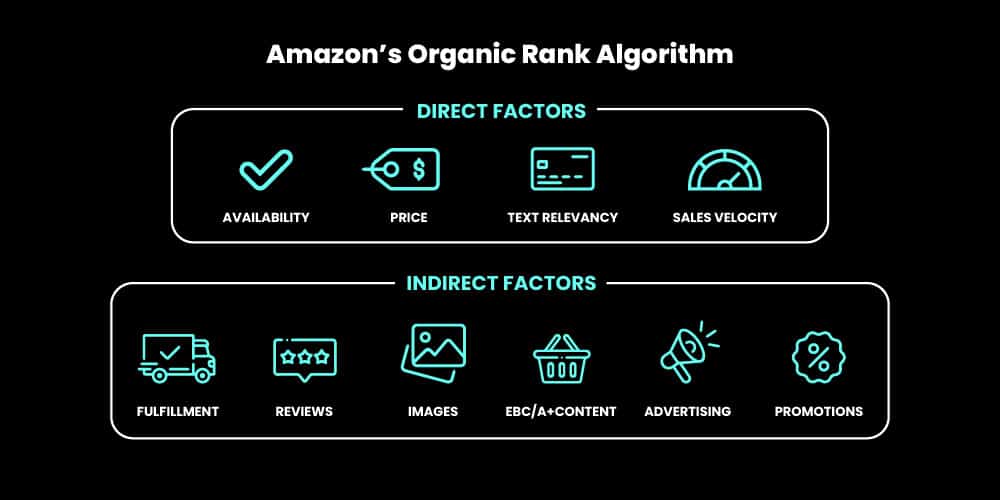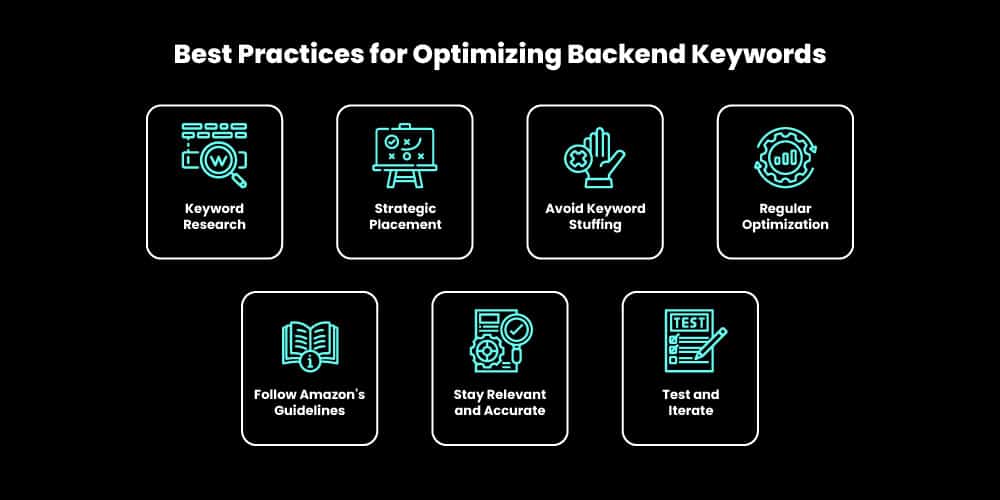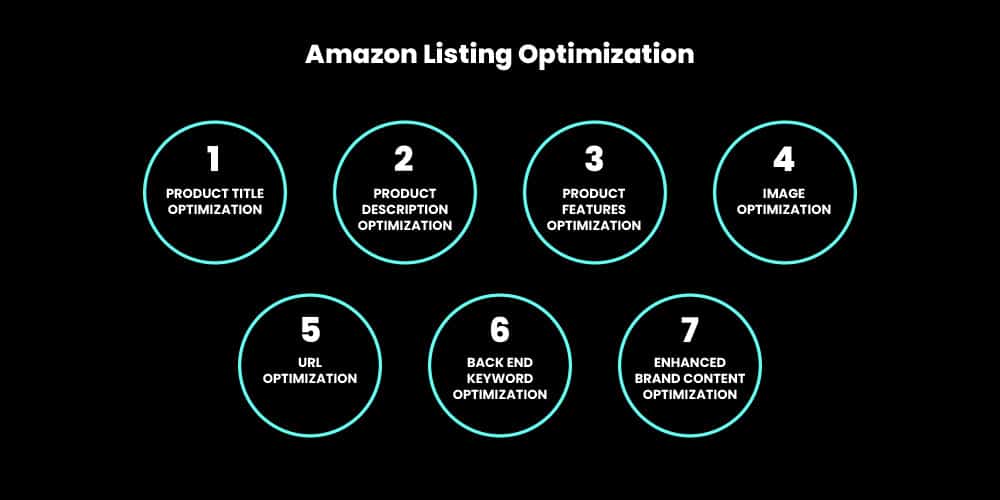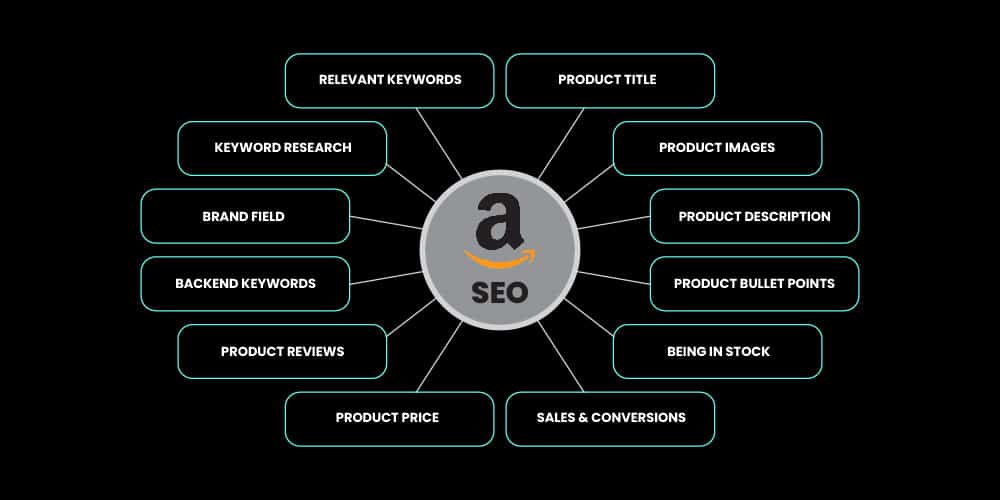What is the Importance of Backend Keywords in Amazon Listing Optimization
As an Amazon seller, you must be familiar with the term “backend keywords” or “backend search terms” when optimizing your product listings. Amazon backend keywords are a crucial aspect of Amazon listing optimization that can significantly impact the visibility and ranking of your products on the Amazon SERP (Search engine result pages).
In this blog, we will explore
– What are backend keywords?
– How do they differ from front-end keywords?
– What is the importance of optimizing backend keywords for your product listing?
– Best practices for optimizing them to enhance your Amazon SEO strategy.
– Benefits of using Amazon backend keywords.
– And the best tools for finding backend keywords for your listing optimization.
So, let’s dive in and uncover the power of backend keywords in optimizing your Amazon product listings.
Understanding Amazon Backend Keywords
What are backend keywords on Amazon, and what is the difference between frontend and backend keywords?
In Amazon product listing, backend keywords are a set of keywords or search terms added to the backend or hidden section of the listing. These high-ranking search terms are not visible to customers but are used by Amazon’s search algorithm to index and rank products in search results.
Amazon backend keywords are the search queries asked by the visitors on the Amazon search bar. They are not the same as front-end keywords that customers may see in the product title, bullet points, and description.
How Amazon’s search algorithm uses backend keywords to rank products?
Amazon’s search algorithm uses backend keywords to understand the context and relevance of a product listing to specific search queries. 56% of consumers start their product searches on Amazon. When a shopper looks for a product, the algorithm scans the backend keywords of relevant product listings and matches them with the search query.
Suppose the Amazon backend keywords are optimized and aligned with the customer’s search query. In that case, it increases the chances of the product listing ranking higher in the search results, leading to improved product visibility and discoverability.

Limitations of front-end keywords and how backend keywords can overcome them
One of the limitations of front-end keywords is the character limit imposed by Amazon. Front-end keywords are limited to a certain number of characters, and sellers must strategically choose which keywords to include in the product title, bullet points, and description.
This limitation can restrict the number of relevant keywords that can be used, potentially resulting in missed opportunities for product visibility.
This is where Amazon backend keywords come into play. They allow sellers to include a broader range of relevant keywords that may not fit within the character limit constraints of front-end keywords.
Therefore, backend keywords provide an additional opportunity to optimize a product listing for a more comprehensive set of relevant search queries, overcoming the limitations of front-end keywords and increasing the chances of better visibility on Amazon.
Benefits of Backend Keywords in Amazon Listing Optimization
Improved Search Ranking
Amazon backend search terms play a crucial role in improving the search ranking of a product listing. When these search terms are optimized with relevant and highly searched keywords, it enhances the likelihood that the product listing will appear on the first page of results for those keywords.
Higher search ranking leads to increased visibility and exposure to potential customers, resulting in higher click-through rates and conversion rates. According to Jungle Scout, 68% of consumers make their purchases from Amazon.
Expanded Keyword Coverage
Amazon backend keywords allow sellers to expand their keyword coverage for a product listing. While front-end keywords have character limits, Amazon backend search terms provide an opportunity to include a more comprehensive range of relevant keywords.
This helps cover a broader spectrum of customer search queries. Which includes long-tail keywords and specific product attributes, which may not be feasible with front-end keywords alone. This increases the chances of the product listing appearing in relevant search results, driving more targeted traffic and potential customers.
Enhanced Relevancy
Amazon backend keywords allow sellers to use all the possible keyword variations that customers can put up as a search query. This is a critical factor in Amazon’s search algorithm as it helps improve the relevancy of the product listing to specific search queries.
Therefore, when a product listing is highly relevant to a customer’s search query, it increases the chances of the listing ranking higher in the search results, leading to improved visibility.
Competitive Advantage
Optimizing backend keywords provides a competitive advantage to sellers on Amazon. By leveraging Amazon backend keywords effectively, sellers can outperform their competitors in search results and increase the visibility of their products. This may result in higher click-through rates, conversion rates, and overall sales.
Additionally, backend keywords allow sellers to optimize their product listings based on customer trends, seasonality, and other market factors. This gives them an edge over competitors who may not utilize Amazon keyword optimization to their full potential.
Recommended Reading: Running an e-commerce business? Discover 7 creative ways to offer free shipping in eCommerce! Learn valuable insights on optimizing your shipping strategy for success in the competitive world of online retail!
Best Practices for Optimizing Amazon Backend Keywords
Optimizing backend keywords requires a strategic approach to ensure maximum effectiveness. Here are some best practices to follow:
Proper Keyword Research
Thorough keyword research is the foundation of backend keyword optimization. Identify relevant and highly searched keywords suitable to your product and target audience.
Use keyword research tools and extensions, analyze competitor listings, and consider customer search behavior to identify the most effective Amazon backend keywords to optimize your product listing.
Strategic Keyword Placement
Place backend keywords strategically in the appropriate fields provided by Amazon, such as the “Search Terms” or “Subject Matter” fields. Ensure that the keywords flow naturally and make sense in the context of the product listing.
Avoid adding all your keywords in one field or using irrelevant keywords, as it can lead to keyword cannibalization and decrease the listing’s relevancy.
Avoid Keyword Stuffing
As stated above, while it’s essential to include relevant keywords to get better results, make sure to avoid keyword stuffing. In layman’s terms, keyword stuffing is the practice of overloading a product listing with excessive keywords. Amazon’s search algorithm may penalize listings that engage in keyword stuffing, leading to poor search ranking and visibility.
Focus on using keywords strategically and naturally, ensuring the product listing remains relevant and informative to potential customers.

Ensure Regular Optimization
Backend keyword optimization is not a one-time task but an ongoing process. Continuously monitor and re-optimize your Amazon listing based on customer search trends, market research, and performance data.
Keep track of how different keywords are performing and make necessary adjustments to improve search ranking and visibility.
Follow Amazon’s Guidelines
Amazon has specific guidelines for backend keyword optimization, and following them is crucial to avoid potential penalties. For instance, Amazon limits the total character count for backend keywords to 250 bytes (Ideally, sellers keep to 200 char limit to avoid listing suppression).
Additionally, prohibited content, such as offensive language or competing brand names, is prohibited. Always adhere to Amazon’s guidelines to ensure compliance and optimize your product listing effectively.
Stay Relevant and Accurate
Ensure that your Amazon backend keywords remain relevant and accurate to your product. Avoid using misleading or irrelevant keywords, which can negatively impact customer experience and result in poor reviews or returns.
Ensure that the keywords accurately represent your product and its features, helping customers find your listing when they search for relevant terms.
Test and Iterate
It’s crucial to continually test and iterate to find the most effective backend keywords for your product listing. Monitor the performance of your product listing using analytics and data, and make data-driven decisions to optimize your Amazon backend keywords continually.
Test different keywords, placements, and strategies to identify what works best for your product and target audience.
Need help optimizing your Amazon listings? Don’t have the time or expertise to do it all yourself? No worries! Our team of Amazon services experts can handle all the intricacies for you, helping to improve your product visibility and boost your overall Amazon business success!
Let us take care of the details so you can focus on growing your business on the world’s largest online marketplace.

Best Amazon Keyword Research Tools to Use For Your Amazon Listing Optimization
When it comes to finding Amazon backend keywords for listing optimization, there are several powerful tools available that can help sellers identify relevant and high-performing keywords. To help you out, we have prepared a list of the best tools for your Amazon backend keyword research:
- Helium 10
- Jungle Scout
- Sellics
- MerchantWords
- Google Keyword Planner
- Amazon’s Search Suggestions
Helium 10
Helium 10 offers a wide range of powerful tools for Amazon sellers, including a keyword research tool called Magnet. Magnet allows sellers to generate extensive lists of Amazon backend keywords by providing relevant keyword suggestions based on search volume, competitiveness, and relevancy.
Jungle Scout
Jungle Scout is a popular Amazon seller tool with a keyword research feature called Keyword Scout. This tool provides sellers with a vast database of keywords and search terms customers use, helping them identify potential Amazon backend keywords for their listings.
Sellics
Sellics is an all-in-one Amazon seller platform that includes a keyword research tool called Sonar. Sonar provides sellers with valuable insights on keyword search volume, trends, and relevancy, making it a helpful tool for Amazon keyword research.
MerchantWords
MerchantWords is a reliable keyword research tool for Amazon sellers that offers a vast database of Amazon search terms and keywords. Sellers can use MerchantWords to identify relevant Amazon backend keywords and optimize their product listings accordingly.
Google Keyword Planner
While not explicitly designed for Amazon, Google Keyword Planner is a free tool provided by Google that can be useful for identifying potential Amazon backend keywords. Sellers can use this tool to research keywords related to their products and identify relevant keywords that customers may use.

Amazon’s Search Suggestions
One of the simplest yet effective ways to find Amazon backend keywords is by using Amazon’s search suggestions. Simply start typing relevant keywords in Amazon’s search bar, and Amazon will automatically generate recommendations based on popular searches. This can provide valuable insights into the keywords that customers are using on Amazon.
By leveraging these tools, sellers can conduct comprehensive backend keyword research and identify relevant keywords. That can help optimize their Amazon listings for better visibility and discoverability.
It is essential to analyze the data provided by these tools and choose keywords that are relevant to your product. Also, ensure having a high search volume to maximize the effectiveness of your Amazon keyword optimization strategy.
Final Thoughts
In conclusion, backend keywords are a powerful tool that can significantly impact a product’s performance on Amazon. By implementing best practices for Amazon backend keyword optimization, sellers can improve their product’s visibility. This ultimately will lead to more traffic, increasing their chances of success on Amazon.
Moreover, to stand out from competitors on Amazon SERP, sellers must continually monitor and optimize backend keywords. This will drive success for Amazon products by adapting to market trends and consumer behavior. Therefore, it is highly recommended that sellers prioritize backend keyword optimization. Because it is a critical component of their Amazon listing optimization strategy.
Did you find this article helpful? Be sure to stay tuned to our blog for more upcoming marketing tips in the coming weeks so you never miss an update!